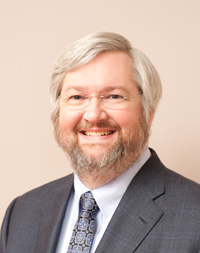|
Cross Examination: On God and Caesar in America
His appeal is especially effective since it is not only grounded in history and relevant to current events -- including growing opposition to America's imperialist foreign policy -- but also informed by a deeply felt faith, and spoken from the heart. He draws on his public service career, his experience as a teacher, and on his religious training. Hart was raised in Kansas, in a family that belonged to the Church of the Nazarene. Speaking as a former elected official, and as one whose theology has inspired him to advocate liberal principles (including separation of church and state, a liberal principle which is found in the New Testament and foundational to American democracy), he boldly knocks down theocrats from their presumed position of political superiority. One such theocrat whom Hart may have had in mind is his fellow Coloradan and Focus on the Family leader James Dobson, who was reared in the same faith community as Hart, but who labors to undermine democracy and replace it with theocracy.
Hart recently told Denver Post columnist Diane Carman that "my wife's family knew Dobson's family." He added, "In the book I raise the question: How could the same God who insisted that James Dobson become a Republican insist that I become a Democrat?"
Hart, who is trained in theology, law, and philosophy -- he earned degrees from Bethany Nazarene College in 1958 and Yale Divinity School in 1961 before graduating from Yale University Law School in 1964, and earning a Doctorate in Philosophy from Oxford University in 2001 -- rejects the notions that God needs to be represented by politicians and their operatives, or that Christians need to impose their private beliefs on others.
Hart paraphrases the opening language of the First Amendment to the U.S. Constitution to make a compelling point: "It is a far cry from 'Congress shall make no laws concerning the establishment of religion' to 'Congress shall adopt my religious beliefs and make them the law of the land." (p. 28) He goes on to challenge Christian supremacy without sacrificing his own deeply and privately held religious convictions:
"Those on the right seem to think that they deserve a special place on the political platform simply because they are intense in their beliefs and that their intensity is somehow significantly more spiritual than anybody else's," writes Hart. "But I hold to my religious beliefs and am committed to the liberal humanitarian agenda they command in me, every bit as strongly as any person on the religious right. It does not seem to occur to those on the religious right that another person's spiritual beliefs might lead them to different political conclusions, conclusions that we should care for the poor, seek peaceful resolution of conflict before making war, act as nature's stewards, or be committed to social justice. The religious right is entitled to its interpretation of religious truth. It is not entitled to conclude that the intensity of its passions grants it a position of political superiority....
That's a reasonable stance, and a respectful tone. And Hart's argument is all the more accessible since he does not set himself on a pedestal, but admits to falling short of Jesus's example repeatedly. (But then, haven't we all, and isn't that why Jesus emphasized grace and forgiveness instead of casting stones?)
Hart titles his essay after Jesus' teaching that people of faith should pay their taxes dutifully, and otherwise respect the authority of secular rulers, such as Tiberius Caesar, whose stern countenance was stamped on Roman coins.
Jesus held one such coin and said, "Give to Caesar what is Caesar's, and to God what is God's." (New International Version, Gospel According to Matthew: 22:21) Further, Jesus rejected the notion that he came to replace Roman rule with theocracy, when he stated to Pontius Pilate, the Roman governor of Judea, "My kingdom is not of this world." (Gospel According to John, 18:36)
Questions:
Cross Examination: On God and Caesar in America | 10 comments (10 topical, 0 hidden)
Cross Examination: On God and Caesar in America | 10 comments (10 topical, 0 hidden)
|
||||||||||||
| ||||||||||||




 print page
print page
